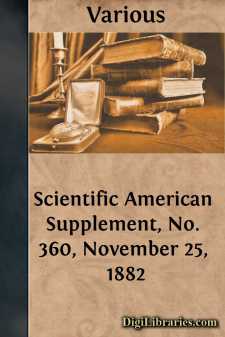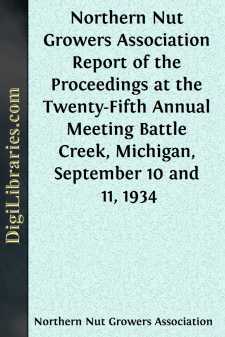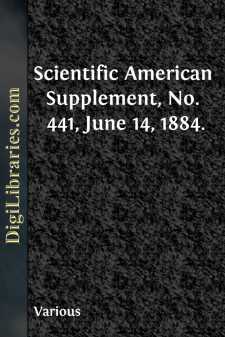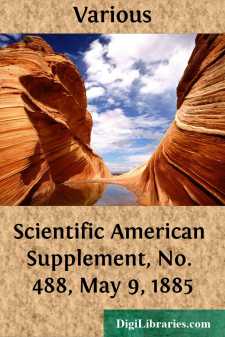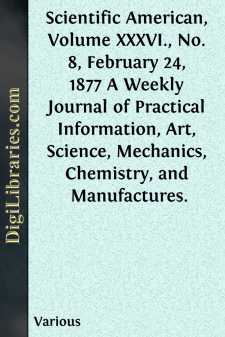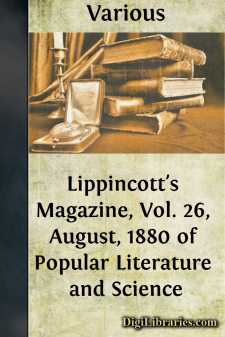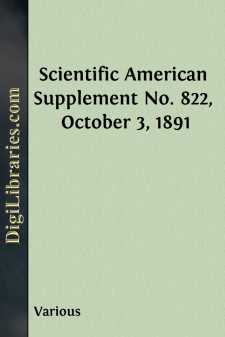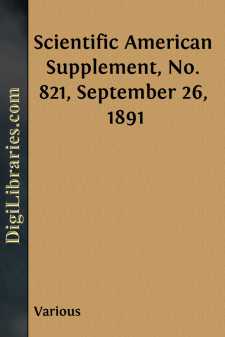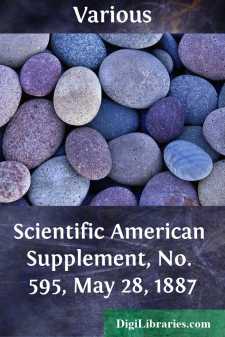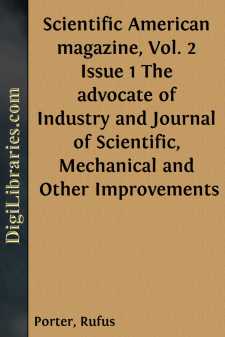Periodicals
- Art 27
- Children's periodicals 59
- Entertainment 5
- Food/Wine 2
- Games/Humor 455
- General 661
- Health 1
- History 53
- House/Home 1
- Regional 62
- Science/Nature 118
- Transportation 10
Periodicals Books
Sort by:
by:
Various
When Sir Henry Bessemer, in 1856, made public his great invention, and announced to the world that he was able to produce malleable steel from cast iron without the expenditure of any fuel except that which already existed in the fluid metal imparted to it in the blast furnace, his statement was received with doubt and surprise. If he at that time had been able to add that it was also possible to roll...
more...
The first session convened at 9:30 A. M., September 10, at the Kellogg Hotel with President Frey in the chair. The President: This is the twenty-fifth annual convention of the Northern Nut Growers' Association, our silver anniversary. Fifteen years ago the convention was held in this city. We are glad to be back again and happy to have with us Mr. W. K. Kellogg who has consented to extend a...
more...
by:
Various
FAURE'S MACHINE FOR DECORTICATING SUGAR-CANE. The object of the apparatus shown in the accompanying engraving is to effect a separation of the tough epidermis of the sugar-cane from the internal spongy pith which is to be pressed. Its function consists in isolating and separating the cells from their cortex, and in putting them in direct contact with the rollers or cylinders of the mill. After...
more...
by:
Various
A VISIT TO THE CREUSOT WORKS. Here we are at the great forge (Fig. 1), that wonderful creation which has not its like in France, that gigantic construction which iron has wholly paid for, and which covers a space of twenty-four acres. We first remark two puddling halls, each of which contains 50 furnaces and 9 steam hammers. It is in these furnaces that the iron is puddled. The ball or bloom thus...
more...
by:
Various
DATES AND THE DATE PALM. Even those whose knowledge of the customs of the Orient extends no further than a recollection of the contents of that time-honored story book, the "Arabian Nights," are doubtless aware that, since time immemorial, the date has been the chief food staple of the desert-dwellers of the East. The "handful of dates and gourd of water" form the typical meal and daily...
more...
by:
Various
AMERICAN AËRONAUTS.BALLOON ENTANGLED IN A TREE.Scattered here and there in this matter-of-fact, utilitarian age of Business one finds instances of that love of daring for its own sake, with an insatiable longing for new scenes and novel sensations, which in the days of chivalry moved the mass of men to put saddle to horse and ride off Somewhere seeking Something—just as occasional trilobites, lonely...
more...
by:
Various
THE STUDY OF MANKIND. Professor Max Muller, who presided over the Anthropological Section of the British Association, said that if one tried to recall what anthropology was in 1847, and then considered what it was now, its progress seemed most marvelous. These last fifty years had been an age of discovery in Africa, Central Asia, America, Polynesia, and Australia, such as could hardly be matched in any...
more...
by:
Various
THE NEW LABOR EXCHANGE, PARIS. The new Labor Exchange is soon to be inaugurated. We give herewith a view of the entrance facade of the meeting hall. The buildings, which are the work of Mr Bouvard, architect, of the city of Paris, are comprised within the block of houses whose sharp angle forms upon Place de la Republique, the intersection of Boulevard Magenta and Bondy street. One of the entrances of...
more...
by:
Various
COPEMAN & PINHEY'S LIFE RAFTS. The experiments with life saving appliances which Mr. Copeman brought before the delegates of the Colonial Conference, on the 13th April, at the Westminster Aquarium, had a particular interest, due to the late and lamentable accident which befell the Newhaven-Dieppe passenger steamer Victoria. In many cases of this nature, loss of life must rather be attributed...
more...
by:
Rufus Porter
The Viol Seraphine. Introduction.--The clear tones of a viol or bass viol are generally admitted to be more melodious than those produced by other kinds of instruments, and many have expressed a desire to see an instrument so constructed as to be played with keys, like the organ or piano forte, and give the tones of the violin. This is the character of the instrument here introduced. It is elegant in...
more...


